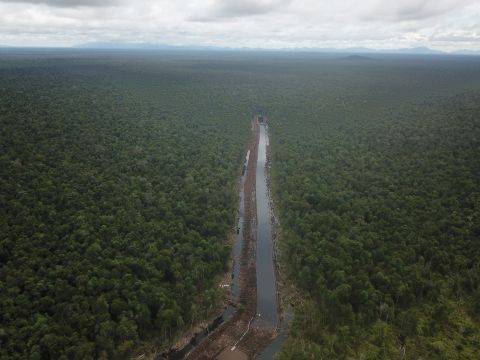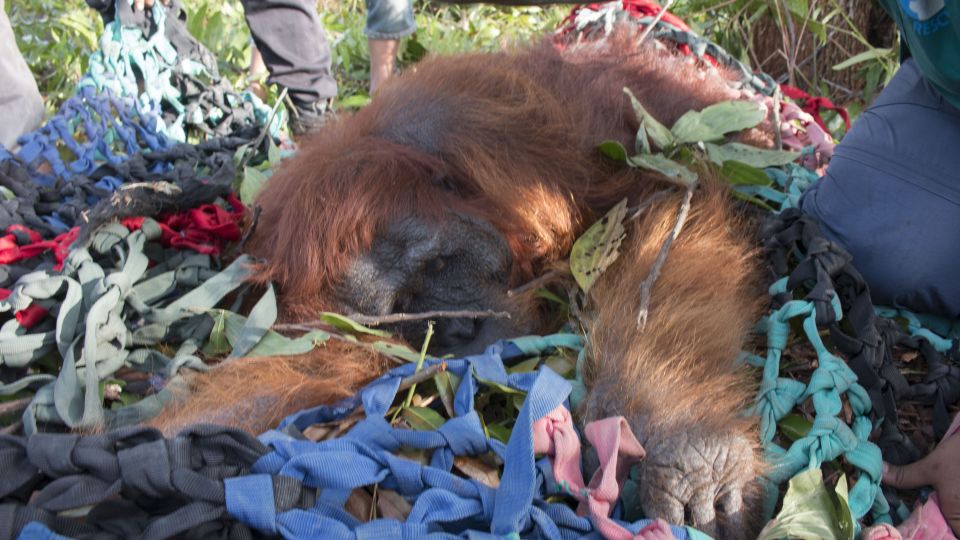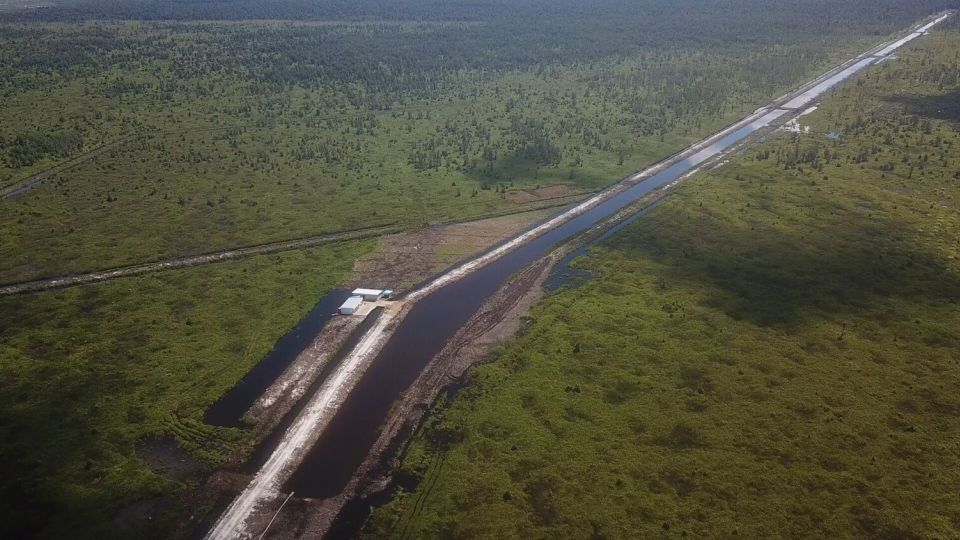
International Animal Rescue has praised action taken by the Indonesian government to protect a deep peatland forest in West Kalimantan (Indonesian Borneo.) The Sungai Putri Forest in Ketapang Regency is home to one of the world’s largest remaining populations of critically endangered orangutans but the habitat is under threat in spite of changes in the law designed to protect it.
In 2008 Indonesian company PT Mohairson Pawan Khatulistiwa (MPK) was granted a logging licence for the land and work began in 2013. However, following raging fires in 2015 which destroyed 2.6 million hectares of forest and shrouded Indonesia in a suffocating haze, President Joko Widodo changed the law and introduced regulations to prevent the burning of peatland. Companies including PT Mohairson could no longer cut down intact forest for industrial use. MPK was ordered to cease all operations and fill in the canal which had been created to drain the peat swamp forest.
In spite of the change in the law, some work continued. When this was drawn to his attention by the BBC earlier this year, the Director General of Environmental Damage Control at the Environment Ministry, Mr MR Karliansyah, said: “If this is correct, this is a clear violation and we will investigate. The forest is virgin forest that should be saved. If they haven’t started logging and the forest is still intact and under law it’s now protected, it must be conserved, it cannot be touched.”
Between 800 and 1,000 critically endangered orangutans live in Sungai Putri forest, according to a 2017 survey conducted by the state Natural Resources Conservation Centre (BKSDA) in partnership with international environmental groups. That makes it the largest orangutan population living outside a protected area in Indonesia, according to the report.

In 2017 our teams rescued male orangutan Zola (pictured) from a pineapple plantation adjacent to Sungai Putri Forest. The adult male weighing about 60 kg was captured by IAR’s team after damaging hundreds of the villagers’ pineapple plants. The pineapple orchard was adjacent to an area of land being cleared by PT MPK. The orangutan had apparently been driven out of his habitat by the land clearing activities and entered the pineapple plantation in search of food. He was subsequently released with two other rescued orangutans into Gunung Palung National Park.
We applaud the crackdown by the Indonesian authorities on illegal logging in Sungai Putri. Alan Knight OBE, IAR Chief Executive, said: “We’ve learnt today that on 1 July the quick response and special crime units of the police and officials from the Ministry of Environment and Forestry raided a company in Ketapang Regency suspected of illegal logging from Sungai Putri Forest. “We applaud the strong stance being taken by the authorities on this important issue. In particular we commend the Director General of Law Enforcement for Environment and Forestry, Rasio Ridho Sani who stated that “unlawful environmental activity, including illegal logging, is an extraordinary crime which must be dealt with firmly, not only because it harms the state but also because it destroys the ecosystem and threatens the livelihood of local people.”

On 4 July in Pontianak Subhan, Head of the Law Enforcement Unit for Environment and Forestry in Kalimantan said: “We will continue the investigation in order to reveal the identity of the other perpetrators and process the case to be put on trial. This effort is a concrete step by the Directorate General to save orangutan habitat in the area of Gunung Palung-Sungai Putri.”
Knight concluded: “The Ministry of Environment and Forestry has made a clear commitment to crack down hard on illegal logging and punish the perpetrators. “If Sungai Putri Forest were to be destroyed, we would lose one of the most important orangutan populations we have left. We are indebted to the Environment Ministry for its ongoing efforts to end illegal logging operations in the area and preserve this precious habitat for the sake of both people and wildlife.”

